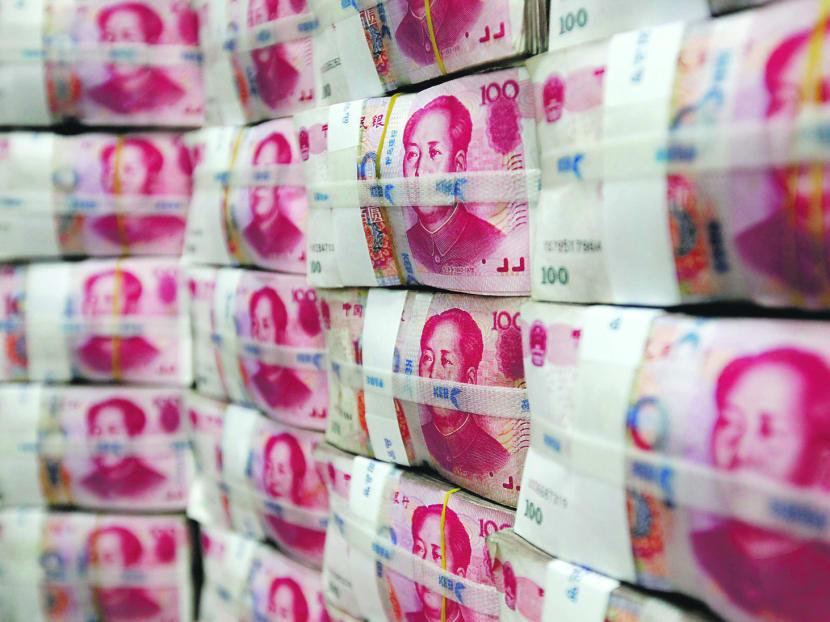Yuan joins elite club of currencies
HONG KONG — The Chinese yuan was anointed as one of the world’s elite currencies yesterday (Nov 30), a milestone decision by the International Monetary Fund that underscores the country’s rising financial and economic heft.

Photo: REUTERS
HONG KONG — The Chinese yuan was anointed as one of the world’s elite currencies yesterday (Nov 30), a milestone decision by the International Monetary Fund that underscores the country’s rising financial and economic heft.
The move will pave the way for broader use of the yuan in trade and finance, securing China’s standing as a global economic power. Four other currencies, the dollar, the euro, the pound and the yen, have the IMF designation.
As the leading yuan centre in this region and a financial conduit between China and ASEAN, Singapore is expected to benefit from this development, and will likely experience a rise in yuan-settled business and investment activity flowing through its financial system, analysts told TODAY.
The IMF designation, an accounting unit known as the special drawing rights, bestows global importance.
Many central banks follow this benchmark in measuring their reserves, which countries hold to help protect their economies in times of trouble. By adding the yuan to this group, the IMF effectively says that it considers the currency to be safe, reliable and freely usable.
It is a “recognition of the progress that the Chinese authorities have made in the past years in reforming China’s monetary and financial systems,” IMF managing director Christine Lagarde said. “The continuation and deepening of these efforts will bring about a more robust international monetary and financial system, which in turn will support the growth and stability of China and the global economy.”
Policy makers in Asia yesterday welcomed the yuan’s inclusion, with South Korea expecting to boost holdings of the currency and Hong Kong pledging to increase support for yuan trading. The Monetary Authority of Singapore said it looked forward to strengthening cooperation with its Chinese counterpart.
“This is a momentous and positive development for the international monetary system and reflects the growing use of the yuan as an international payments currency for trade and investment. MAS has worked closely with the People’s Bank of China on initiatives to promote greater use of the RMB in Singapore and the Southeast Asian region, and we look forward to further strengthening cooperation ... to help foster a resilient and thriving RMB ecosytem in the region,” an MAS spokesperson said.
The designation is a point of pride for Beijing, which had made it one of its highest economic policy priorities.
Besides its symbolic weight, the IMF label, which will take effect at the end of September, carries specific benefits. The yuan will become one of the currencies used in the disbursement and repayment of international bailouts denominated in the fund’s accounting unit, like Greece’s debt deal.
In the months before the fund’s decision, China moved aggressively to expand the currency’s standing on a global stage, building trading hubs in Europe and developing a raft of yuan-denominated bonds and commodity contracts. But the bumpy process also introduced new uncertainty into China’s economy and financial system.
To meet the IMF requirements, China was forced to give up some of its tight control over the currency, culminating in the abrupt devaluation of the yuan that shook global markets in August. The changes could inject fresh volatility into the country, at a time when its economy is already slowing.
The IMF designation also does not mean that China’s economic overhaul is complete. China maintains heavy regulatory control over the country’s financial system. The country also falls short in legal protections, with the Communist Party continuing to play a strong role in deciding court cases.
Agencies





